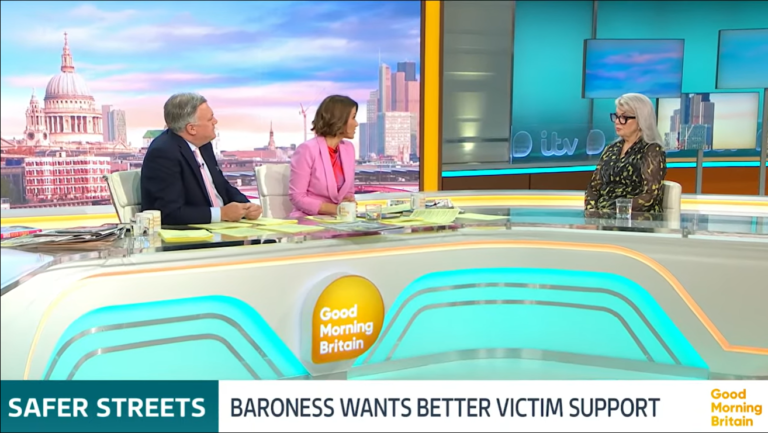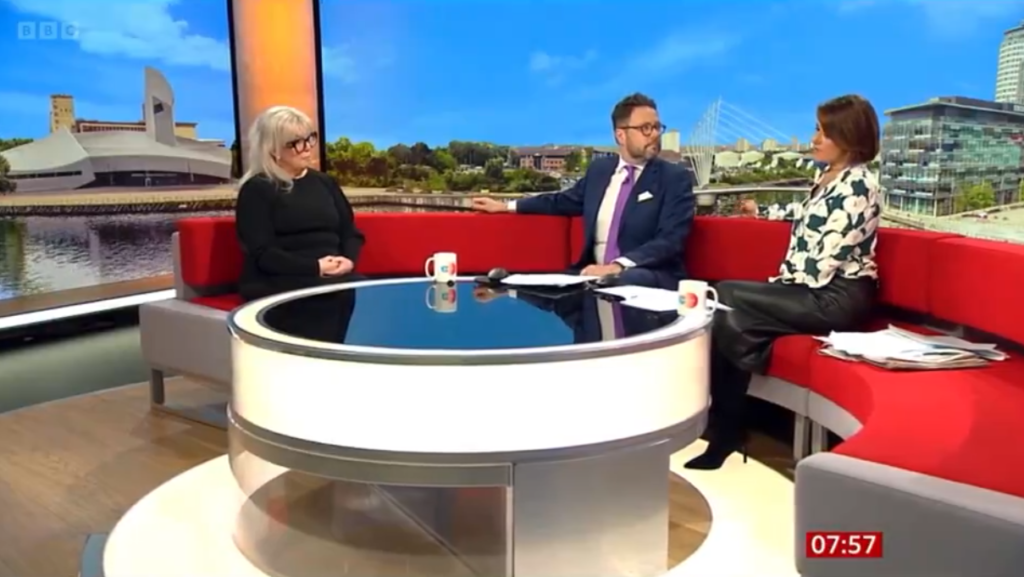Anti-social behaviour: Ending the nightmare

It pains me that, 17 years after Garry's death, I still meet victims of persistent anti-social behaviour who are having the same experiences we had.
This article was first featured in Baroness Newlove’s 2023/24 Annual Report, published on 10 October 2024. It is being republished to coincide with ASB Awareness Week, 18-24 November 2024.
It was as a victim of anti-social behaviour (ASB) in 2007 that I got my first insight into the criminal justice system.
We lived in a quiet and respectable neighbourhood until a group of youths targeted us and, for months, made our lives a living hell. As the problems escalated, we, together with our neighbours, repeatedly turned to the police and were either ignored or patronised.
It gradually dawned on me the police had no conception of the harm being caused to us as families and as a community. I remember saying to my neighbour: they won’t do anything until someone gets killed. Little did I know this person would be my husband, Garry. Neither did I have any idea his brutal murder would take place outside our family home and in front of our three young daughters.
It will therefore come as no surprise to anyone when I say that I am passionate about supporting victims of ASB. It also pains me that 17 years after Garry’s death, I still meet victims of persistent ASB who are having the same experience we had.
This is why I gave my full support to an amendment to the Victims and Prisoners Bill, which sought to ensure victims of persistent anti-social behaviour are recognised as victims of crime and are provided with their Victims’ Code rights.
There is no statutory definition of ‘persistent anti-social behaviour’. So, in my report on ASB (Living a Nightmare, published in April 2019), I defined it as the trigger point for victims to request an ASB Case Review (formerly known as the ‘Community Trigger’). This means three reported incidents of ASB by the same victim(s) and in relation to the same perpetrator(s) over a six-month period.
This trigger point is important as once there is a pattern of ASB, in all likelihood, the behaviour will have crossed the threshold of criminality, whether that be harassment, criminal damage, threatening behaviour, hate crime, etc.
However, many victims who meet the threshold are not treated as victims of crime. The police, council or housing providers choose to treat the matter as a misdemeanour or neighbour dispute and not pursue criminal charges. As a result, they fail to inform victims of their statutory entitlement to access victim support services.

This infuriates me as it highlights a culture of trivialising ASB as “low level” and a “nuisance”. Yet, we know persistent ASB can cause real and significant harm. The impact is derived from the continuous nature of the conduct. This failure to understand the impact on victims is exacerbated because criminal justice agencies view incidents in isolation rather than looking at the whole picture.
This cumulative impact can devastate victims’ lives, affecting their sleep, work, relationships, health, and feelings of safety in their own home. Recent research conducted by the charity Resolve and YouGov found one in ten respondents had moved home because of the impact ASB was having on them. This is not an option for everyone – nor should it need to be.
ASB left ‘un-policed’ can escalate with devastating consequences. The deaths of Dr Suzanne Dow, Fiona Pilkington, Bijan Ebrahimi, Matthew Boorman, Stephen and Jennifer Chapple, David Askew, Louise Lotz and of course, Garry Newlove, can be directly attributed to ongoing campaigns of anti-social behaviour; whether they died by suicide or homicide or, in the case of David Askew, who collapsed and died on his own doorstep, “an unlawful death after years of torment”.
In 2007, a campaign of violence tore apart my family’s ordinary life and led to the senseless murder of my husband, Garry.
My story is unique only in its tragic outcome. The relentless harassment, the ignored pleas for help, the sense of powerlessness – these are the grim realities countless ordinary families face every day.
The first step in tackling this is to provide victims of persistent ASB with the support they need. This means the police identifying when the criminal threshold has been met and referring victims to victim support services. At present, this is not happening. Even if victims find their own way to local victim services, they are often turned away. Police and Crime Commissioners’ funding for victims’ services is ringfenced for victims of crime, and, without a police referral, they wrongly assume the victims are not eligible for locally commissioned victim services.
In fairness, some PCCs do provide limited support to ASB victims by using their discretionary funding. But most do not. It is quite literally a postcode lottery.
By giving victims of persistent ASB the same rights as other victims of crime we could ensure they get the same level of support as other victims of crime. My proposed amendment to the Victims and Prisoners Act would have ensured victims who meet the ASB Case Review threshold are referred to victims support services and receive the help they need to cope with this nightmare that they are having to endure on their own.

Unfortunately, the amendment was not accepted by the last government. When put to a vote, it was defeated by just 7 votes.
However, the last government did acknowledge the problem. In a commitment made at the despatch box, Ministers agreed to review ASB guidance and the Victims’ Code to make it explicit that, where ASB victims meet the criminal threshold, their Victims’ Code rights apply, and they must be referred to local support services. The last government also promised to review guidance given to PCCs on this matter.
I will work with the new government to make sure these commitments are honoured, and that the new arrangements for monitoring Victims’ Code compliance are used to monitor whether ASB victims are being given the help they need.
Further reading
A new report from the Victims’ Commissioner highlights the damaging impact of persistent anti-social behaviour on its victims.
Published on September 9, 2024
Read full articleBaroness Newlove’s report found people’s lives have been ‘severely impacted’ because of the failure of forces to act on complaints.
Published on September 9, 2024
Read the blogPublished on September 6, 2024
Download the report